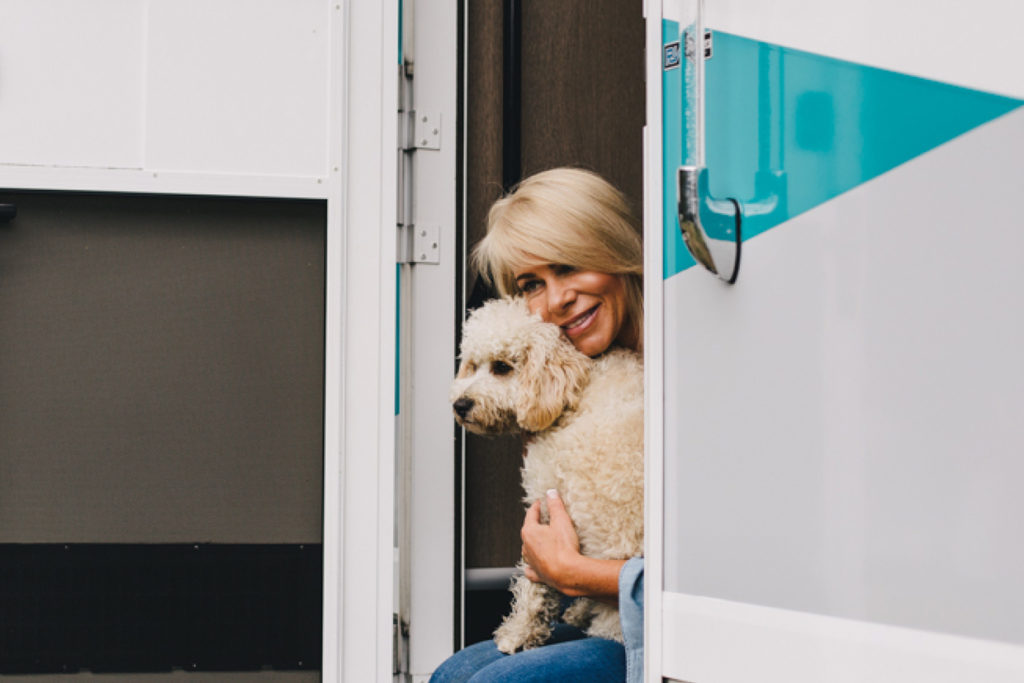Whether it be the big loop or a quick weekend escape, tripping around Australia in one form or another has long been a tradition for many Aussies but what happens when you have a four legged furry friend at home and you have the urge to take off?
Some opt for the local kennels but for others, leaving their beloved dog or cat at home simply isn’t an option. Each day I can almost guarantee that I’ll see a customer travelling with their pet and when I ask why, the most common response is “I could never leave Mr. Meowgi at home! He’s family” or some tongue in cheek variation that indicates a higher level of importance than their human travelling companion.
But travelling with your furry companion isn’t as simple as just throwing them in and taking off. With a little thought and planning, travelling with your pet can be fun and will ensure the safety and well-being of the animal.
First and foremost, make sure your pet can be identified in the event it gets lost. Ensure that it’s microchiped if the council picks it up but that it also has a collar with some form of I.D tag with your mobile number on it so you can be contacted. Always ensure that the microchip details current so there is no confusion
It’s just like taking your pet in the car so in the interests of safety, get yourself a seatbelt attachment and harness for your dog. It prevents them from roaming around whilst on the road plus it gives the pooch a comfy spot perched up on the lounge or dinette. Most importantly though, it prevents the pet from becoming a “live projectile” in the event of an accident. Cats are less common but are also top company so if your cat is used to being moved in a crate they’re usually pretty good for longer stints on the road.
Like us, our pets need a break to stretch the legs so plan to stop every 2 hours. Your pet is likely to be pretty excited at the prospect of being let out of the RV so keep them on a leash for their own safety but let them roam, sniff about and take that essential pit stop. Also consider if your pet is prone to motion sickness and if so don’t feed them the night before or the morning of travel.
Consider your destination and if you are allowed to have pets. If you are planning a stay at a caravan park, ring forward and check to see if they are pet friendly. If so, great! but consider your neighbours when you arrive. Some may not be happy to have to have a young pup singing his anthem all day and night or roaming through their site. National parks are a no no with pets for example in New South Wales no dogs, cats, birds and other domestic pets are not be taken into national parks, state conservation areas, nature reserves, historic sites or Aboriginal areas with the exception of trained assistance animals such as guide dogs. Free camps are usually pet friendly but be courteous to your neighbours.
Minimise the potential stress for your pet and bring along the items you know your pet can’t live without. The favourite bed or chew toy, its feeding bowls or anything else that could make your RV more “homely”. Dogs seem to be fairly carefree when travelling and are simply happy to be around mum or dad but if you have a cat, make sure you have a place for it to hide out. Our feline friends like to be able to escape if it’s feeling a tad out of place or stressed.
Our pets are an important part of our lives and families, and can enhance our travel experience so much more with their presence. With a few precautions and proper planning, you and your pet can be safe, healthy, and happy while travelling together in your RV.
